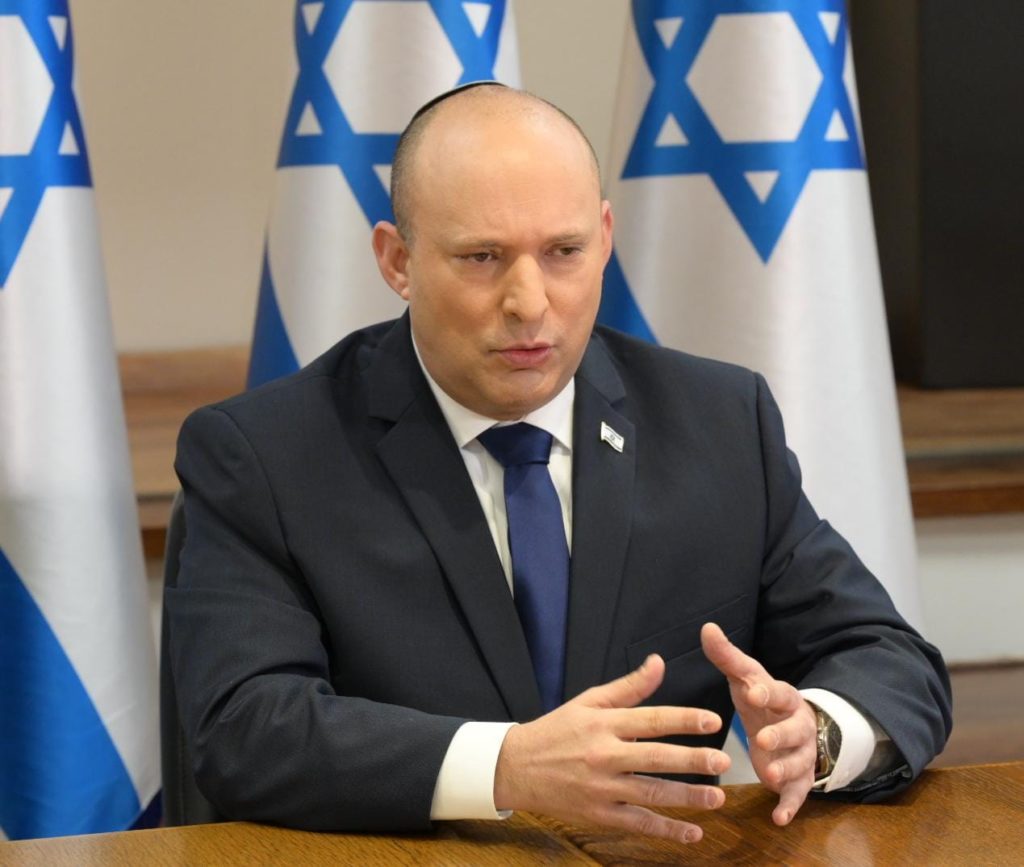
Even France is getting impatient with Iran. After months of on-and-off negotiations between Iran and the major world powers aiming for a return to the international nuclear deal, French President Emmanuel Macron made it clear to his Iranian counterpart this weekend that the pace of diplomacy has been too slow. Meanwhile, just days before Paris expressed frustration at the nuclear talks, Israel argued that the Iranian regime is not a viable partner—and it has little to do with the speed of negotiations.
In Saturday’s call between Macron and Iranian President Ebrahim Raisi, summarized in a press release posted to the French Presidency website and translated by Google, the French President noted the months that have elapsed since the resumption of negotiations and “insisted on the need to speed up in order to quickly achieve tangible progress in this framework. He therefore stressed the need for Iran to demonstrate a constructive approach and return to the full implementation of its obligations.”
The comments come as Iran continues to make disturbing progress towards nuclear weapons capability, expanding their stockpile of nuclear fuel in alleged protest of economic sanctions that a renewed nuclear deal would alleviate. With that activity in the background, Paris isn’t the first Western nation to voice concern at Iran’s dithering in the talks. The United States—who pulled out of the nuclear deal, known as the Joint Comprehensive Plan of Action (JCPOA), in 2018—has repeatedly warned that Iran’s technical progress towards nuclear weapons capability risks making the old JCPOA nuclear restrictions on Iran irrelevant. For Israel, the last year of ineffective talks has only confirmed what they already knew about Iran.
Israeli Prime Minister Naftali Bennett, in comments last Thursday to mark International Holocaust Remembrance Day, did not name the nuclear talks explicitly, but undercut their very nature by laying out the true nature of the Iranian regime. “When we hear the Iranian regime’s daily calls to annihilate the State of Israel, as we speak they continue talking about murdering and destroying the State of Israel, the Jewish state, and when we see their rapid progression towards nuclear weapons, indifference is silent acceptance,” Bennett was quoted as saying in a press release from his office.
“A country who talks about annihilating the Jewish state should not be a legitimate partner for anything.”
Bennett wasn’t the only Israeli leader connecting the Holocaust to Iranian actions. Israeli President Isaac Herzog, in his speech marking the International Holocaust Remembrance Day last Thursday, said, “Though a great deal has been done, it is alarmingly clear that 77 years after the liberation of Auschwitz, the shock is wearing off… We see the Ayatollah regime in Iran calling for the annihilation of the State of Israel, initiating terrorism against Jewish communities around the world, and murdering civilians throughout the Middle East, while some simply look the other way.”
Like Bennett, Herzog believes such behavior should result in diplomatic exclusion. “We must make it clear to all radical regimes that they will never be treated as legitimate members of the international community until they end their calls for genocide and support for terror,” said Herzog, whose comments were published in an Israeli press release.
Despite Iran’s foot-dragging and their overall malignant behavior, Macron still believes negotiations can solve the nuclear impasse. In his call with Raisi on Saturday, Macron “reiterated his conviction that a diplomatic solution is possible and imperative, and noted that any agreement will require clear and sufficient commitments from all parties, on which France is working with all of its partners.”
The West’s insistence on diplomacy with a threatening anti-Semitic regime has troubling parallels to the situation with Nazi Germany in the 1930s. But Bennett made it clear that today there is one critical difference.
“After the Holocaust, rose a sovereign nation that has the power to defend itself. Israel is the Jewish people’s defiance over indifference. Today, we’re free and strong and an independent state,” said Bennett. “…You see, ‘never again’ is more than just a hashtag, it’s a call to action.
“It is our vow that the Jewish people will never again be powerless, never again be voiceless and never again be homeless. The horrors of the Holocaust cannot be erased but we can build a good future for ourselves and for others.”
(By Joshua Spurlock, www.themideastupdate.com, January 30, 2022)
